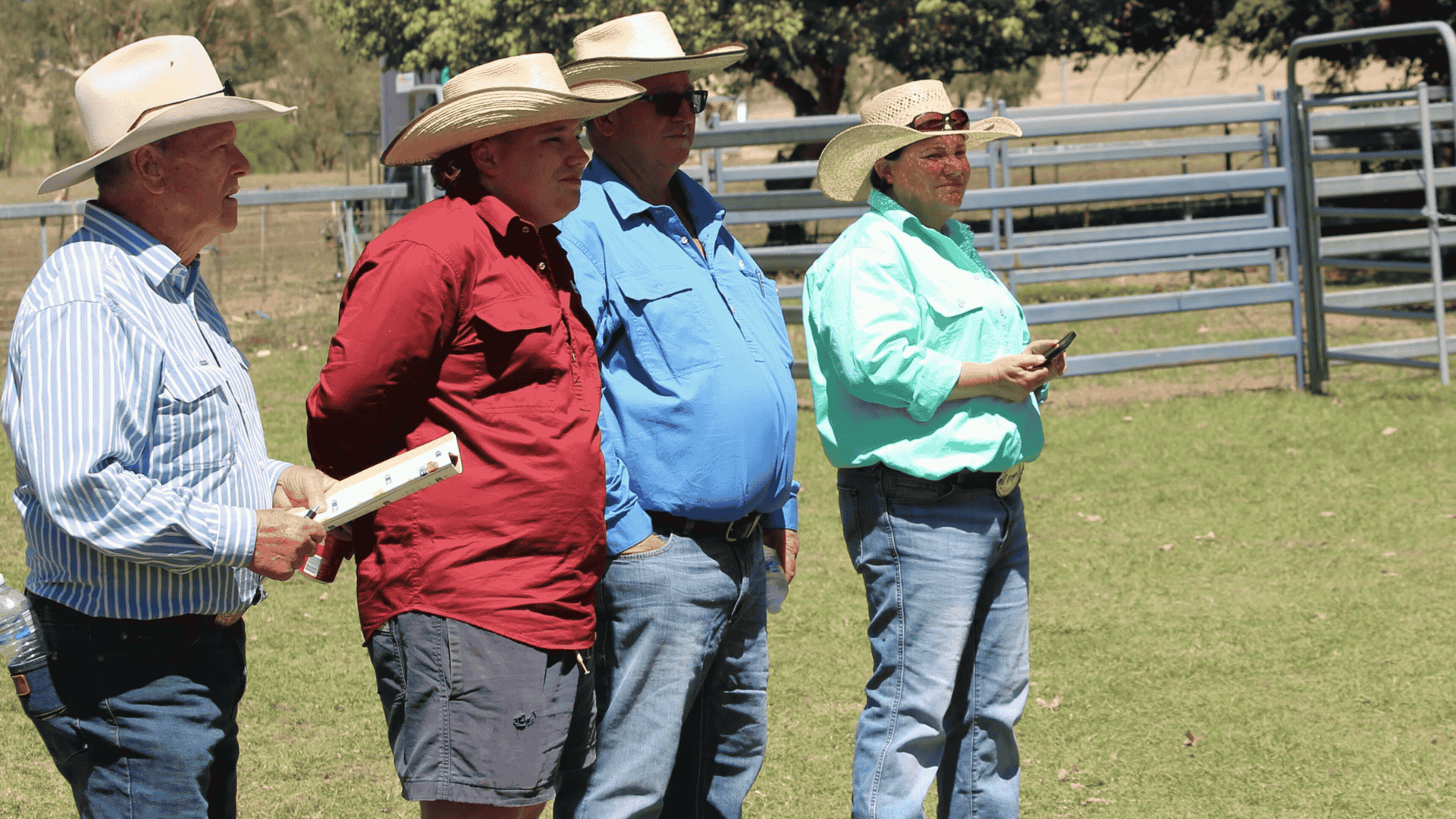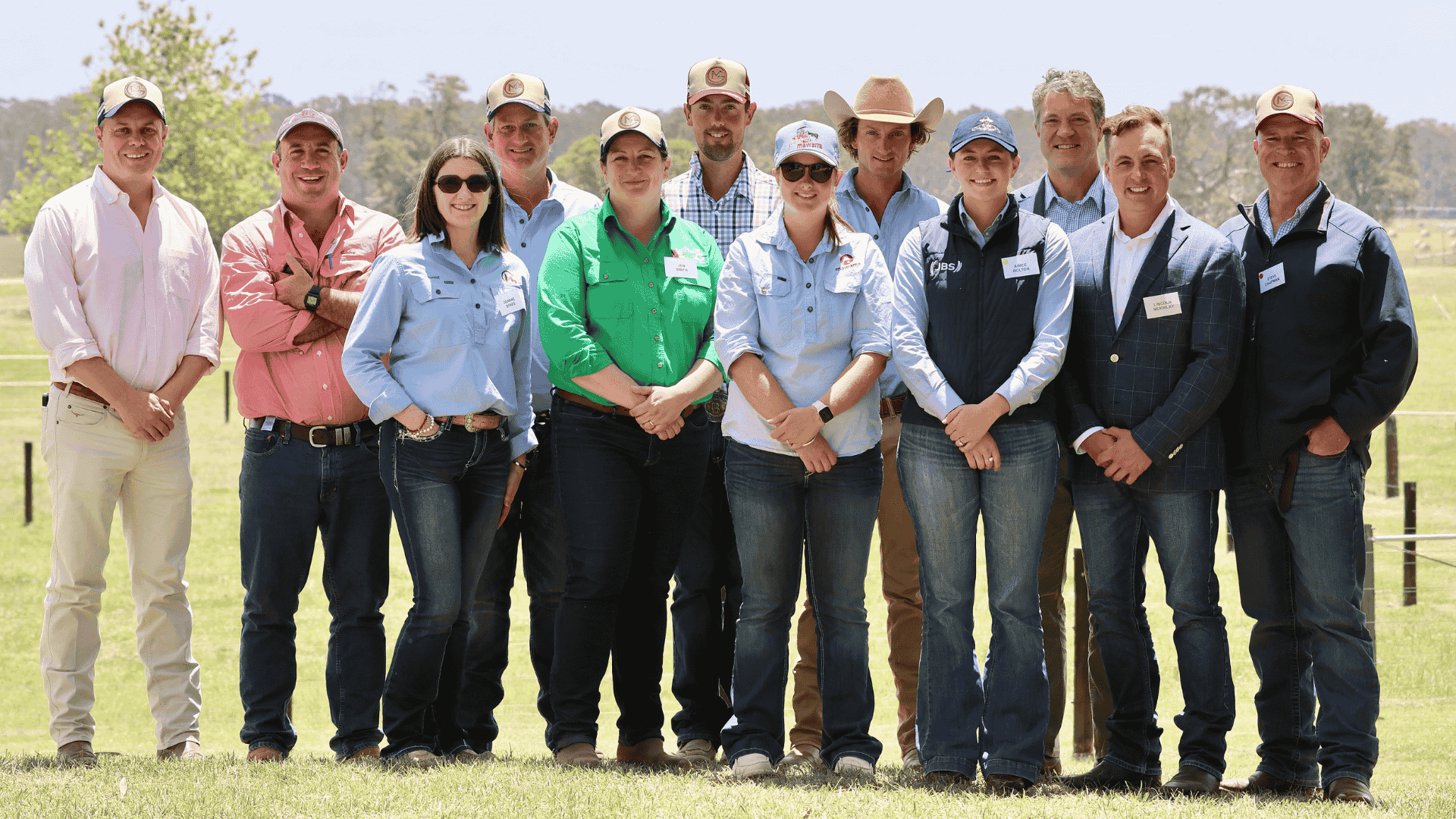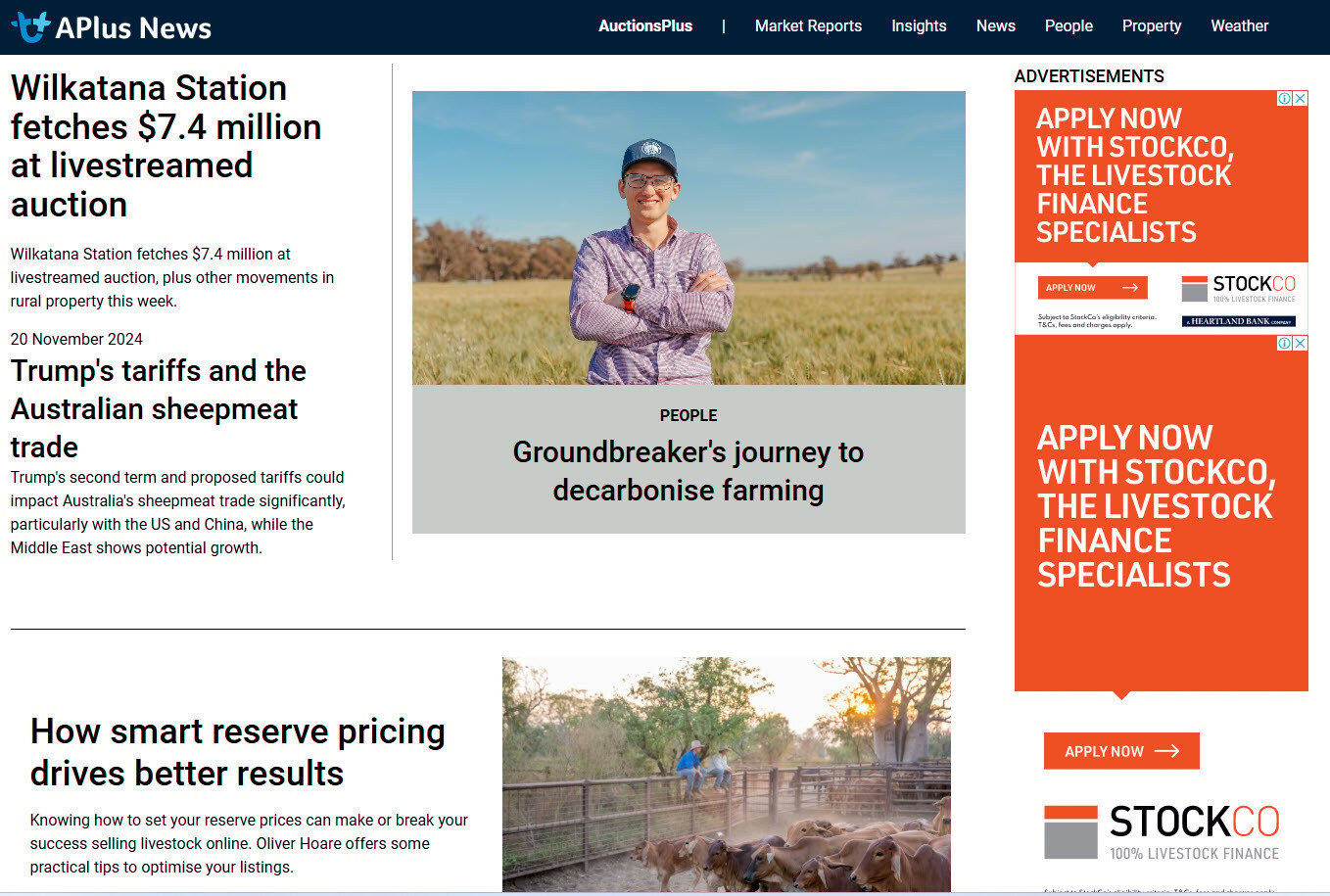New locations sought for Aussie beef due to China levy
Around 800 million burgers worth of Australian beef may need to be diverted into alternative markets, as China enforces import quotas limiting the...
We look back at our most-read articles of 2024. The live export issue was top of mind for many, with the article titled "Farmers fed up with Government fleecing" by Alex McLaughlin the most read article of the year.
From weather reports, to property analysis, record-breaking bulls, livestock market updates and politics, APlus News has delivered a range of articles for the agriculture industry throughout the year.
Take a trip down memory lane, and check out these top reads:
By Alex McLaughlin
The ‘Keep the Sheep’ campaign launched in Western Australia on Wednesday to support those affected by the WA sheep live-export phase out.
The launch came a day before the Albanese Government introduced legislation to Parliament to formalise the end date for the export, and ahead of a grassroots rally that will march through the streets of Perth on Friday to officially inaugurate the #KeepTheSheep campaign.
As part of the campaign, farmers and supporters across WA have declared they will seek to “destabilise” the government in critical seats ahead of the next federal election over its moves to introduce a ban on live export of sheep.
By Jane Bunn
Over the next week and a half we’re likely to be stuck in a persistent pattern where the rain falls over the west and far north of the nation, and the rest miss out. That’s according to every one of the different weather models that make up the guidance for what is most likely to occur day by day, hour by hour at your specific location.
But an alternative forecast from the BOM tells a very different story, where increased rain is shown crossing the interior of the country and spreading down into the southeast across NSW.
What gives?
By Alex McLaughlin
This week's stud sale spotlight for the week ending Friday, August 30 will be one to remember for the 2024 Spring stud selling season.
From interfacing Australia’s most remote bull sale in Fitzroy Crossing WA, to bidding on multiple bulls entering five to six-figure values, the team at AuctionsPlus is in the thick of the stud selling season.
The fierce online activity this week saw numerous studs achieve perfect clearance rates and price records within their seedstock across several breed offerings.
By Natasha Lobban
The Biosecurity Levy Bill was introduced into Parliament today, angering the agriculture industry that will be stung $50m annually if it is passed.
NFF President David Jochinke said the move was “utterly staggering” given the level of opposition to the policy.
“Everyone from the Productivity Commission to the Australian National University and the Freight and Trade Alliance has labelled this policy a dud. It makes zero economic sense,” Mr Jochinke said.
By Jane Bunn
We’ve had two significant rain systems affecting the eastern states so far this month, but now we’ve lost a key source of moisture so there is hardly any rain projected over the next week. This comes as the Pacific Ocean delivers key signals of an upcoming La Niña, letting the Bureau issue a “La Niña Watch”.
Not one, but two, significant rain systems crossed southern QLD, much of NSW and parts of VIC and TAS over the past fortnight. These were thanks to an active trough taking a feed of tropical moisture from a climate driver known as the MJO. When the MJO is near Australia it enhances our supply of moisture.
By Alex McLaughlin
Prime Minister Anthony Albanese has been accused of continuing his government’s detachment from agriculture and displaying a galling lack of empathy for the Western Australian sheep industry, according to the Australian Livestock Exporters’ Council (ALEC).
During a radio interview on 6PR on Tuesday regarding the Keep the Sheep campaign, the PM tried a tricky play on words, saying that he did indeed want to keep the sheep and that’s what his government is attempting to do by banning live exports.
He has drawn ire for effectively dismissing the 57,000 signatories that have signed up in support of the campaign, eclipsing all petitions opposing the trade.
By Kylie Dulhunty
The rural property market has largely recovered from its start-of-year standoff, with industry experts reporting an increase in listings and sentiment, while predicting a further snowball effect leading up to Christmas.
LAWD Senior Director, Danny Thomas, said at the start of 2024 the rural property market had hit a stalemate, with market confidence, and listings, well below normal.
People were sitting on their hands, waiting to see what happened in terms of red meat prices and whether or not that El Nino the BOM predicted happened,” he said.
While weather conditions were far from as severe as predicted, farmers still acted quickly to divest cattle, including some at very low prices.
By Ed Dunlop
There’s an old saying that farmers are married to the weather. But are prices?
El Nino and La Nina are thought to be reflected in Australia’s primary cattle livestock indicator – the Eastern Young Cattle Indicator (EYCI).
In the past 15 years, the EYCI has averaged 506c/kg in periods outside of El Nino and La Nina. During El Nino events it was 32c/kg lower and during La Nina events it was 168c/kg higher.
By Natasha Lobban
Duxton Farms has sold its 8,000ha Timberscombe property to PSP-owned Altora Ag Pty Ltd for $70 million.
The sale was confirmed in a release to the ASX, which reported the contract for sale was successfully executed on Thursday and settlement was due to occur in four weeks, subject to Foreign Investment Review Board approval.
Altora Ag was created by the rollup of BFB and Daybreak Cropping in December 2022. Public Sector Pension Investment Board (PSP Investments), one of Canada’s largest pension funds and one of the largest foreign investors in the Australian agricultural sector, took a majority stake in Temora-based BFB in 2019. Daybreak Cropping was purchased from fund manager Warrakirri in April 2022 and was added to the portfolio. The combined entity
By Natasha Lobban
The Livestock Production Assurance (LPA) accreditation program is believed to be getting another makeover and it’s reportedly going to cost farmers more.
Industry insiders understand that the current three-year program will be replaced by a bi-annual self-assessment model.
It is believed a fee increase of 30% or more has been proposed and that the changes could come into effect as early as July 1.
National Vendor Declarations (NVDs) are also believed to be increasing in cost but are not expected to change format.
By Ripley Atkinson
Restocker-to-trade lamb discounts present significant trading opportunities this spring.
Reduced producer confidence and a higher supply of store lambs with strong genetic performance lay the foundation for this trend.
During this key growth period of the year, utilising available grass budgets and generating cash flow can be achievable by capitalizing on these trading opportunities.
By Matt Dalgleish
Recently we took a look at inflation adjusted pricing for sheep and lamb, converting the historic pricing going back several decades into current dollar values, so we could compare what is being paid for livestock now versus the values being paid in the past.
This article does the same process of adjusting for inflation to see how cattle prices for both young cattle and heavy steers have held up over the years, once you convert the pricing into current dollar values.
By Alex McLaughlin
Almost 600% more cattle have been transported from Western Australia to the Eastern States in the first five months of the year, compared to the corresponding period in 2023.
Dry weather and market disruption continues to degrade the WA market, with figures obtained by APlus News from the WA Department of Primary Industries and Regional Development revealing a surge of 595%, or 33,436 head of cattle as opposed to 4,811 head leaving the state up until the end of May last year.
Western price disparity created an attractive proposition for Eastern farmers to purchase out of the western states, with many West Australians offloading stock earlier due to the drier conditions.
.png)
Around 800 million burgers worth of Australian beef may need to be diverted into alternative markets, as China enforces import quotas limiting the...

It was 3.30pm, the hottest part of January 9, when an out of control bushfire, powered by its own microclimate, came roaring out of the state forest...

At Mawarra Genetics, Peter and Deanne Sykes are focused on stepping back from short-term noise and focusing on what actually drives long-term,...
